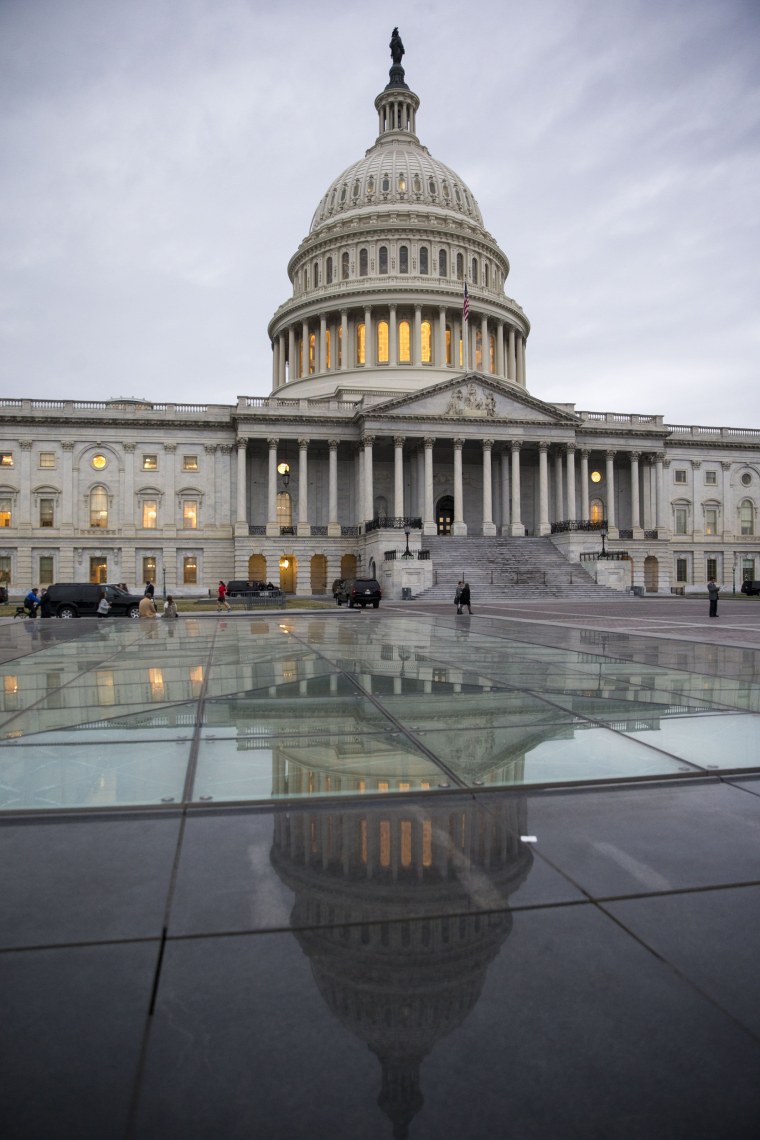The Democratic National Committee may have a new chairman, but Tom Perez will head just one of a handful of emerging power centers in a fractured opposition party struggling to find its way in President Donald Trump's America.
The November elections decapitated the party and scuttled succession plans, which were dependent on a seamless pass of the baton from Barack Obama to Hillary Clinton. The result is a party without a single leader or a unified chain of command — and no clear heir apparent to the failed Democratic nominee.
"Our mode throughout has been pretty clear that this movement doesn't have a leader," said Ezra Levin, a co-founder of Indivisible, the dramatically expanding liberal answer to the tea party. "You have to have some faith in people once they've been activated to figure out their next steps."
1. The DNC
There's a reason some friends warned Perez that running the DNC is often a thankless job. The official party machinery rusted with neglect under Obama and lost ground to super PACs and other outside groups that can accept bigger checks.
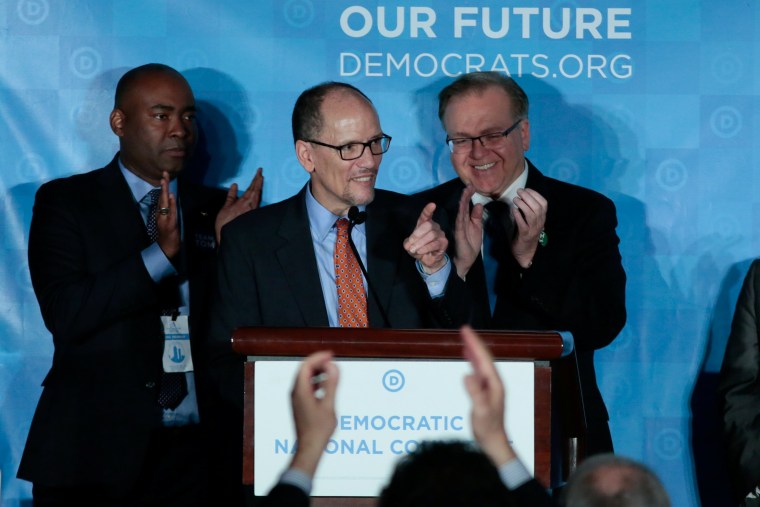
Like a field marshal, Perez will have to act as a facilitator among the sprawling set of elected officials, state parties and interest groups across the ideological spectrum of the Democratic Party.
"We believe the only way that we're going to win is if we work as a cohesive team, utilizing the strengths of all progressive stakeholders nationally and in the states," Perez told NBC News in an email. "We aren't wasting any time when it comes to turning around the Democratic Party and getting Democrats winning again."
The DNC will always remain the official hub of data, messaging and political coordination for Democrats, as well as one of its most powerful platforms to fight Trump in the media. But there are others moving to boost their influence over party affairs.
2. Outside Groups
There are dozens of deep-pocketed interest groups aligned with Democrats, from women's group like EMILY's List to labor unions to environmental PACs. But three major pillars of the unofficial Democratic Party are maneuvering to find a lane for themselves in the opposition.
- Priorities USA spent nearly $200 million supporting Clinton during the 2016 election, mainly on TV ads. But now the super PAC is shifting emphasis to a related nonprofit organization as it seeks to morph into a service center for the anti-Trump "resistance" movement, just as groups like FreedomWorks and Americans for Prosperity did for the tea party in 2009.
"While the Tea Party did arise as a grassroots movement, it was aided by conservative advocacy groups that lent their support to help build the movement's infrastructure and maximize its electoral impact. Priorities USA is well positioned to play a similar role," the group's new mission statement reads.
- The constellation of groups started by conservative-turned-liberal operative David Brock will continue to pump out opposition research on Trump and other Republicans.
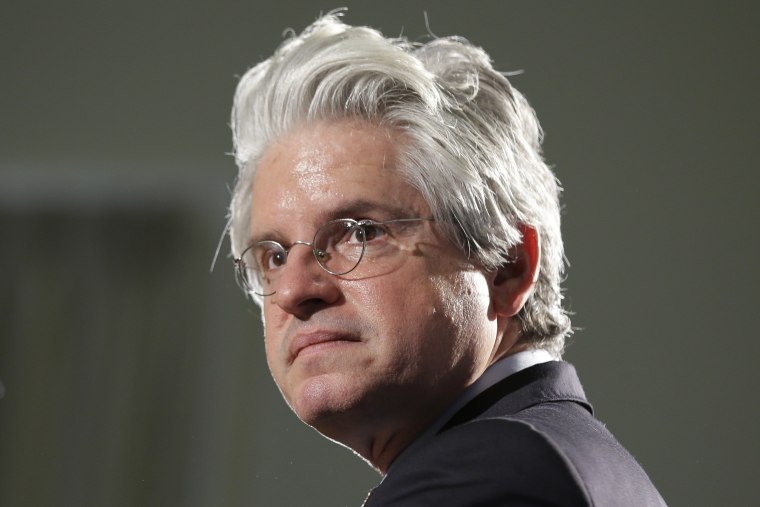
"Brock's organizations, including Media Matters and American Bridge, have become the heart of the party's research and communications infrastructure in the third-party space," said Bradley Beychok, Brock's chief of staff.
"American Bridge's Trump operation in specific is the most robust of its kind in our party's history and is equipped with unparalleled resources, including tracking footage, original research and more, that will be deployed to hold Trump accountable and counter his agenda," Beychok said.
- The Center for American Progress, a major liberal think tank, is retooling to be more political, with a particular focus on Trump's alleged ties to Russia and tools to support local protests.
"CAP will be the engine of ideas for the resistance," said Adam Jentleson, the group's senior strategic adviser, who was an aide to former Senate Democratic leader Harry Reid of Nevada."We will be the place where opposition policy analysis, aggressive press strategies, and online and traditional organizing all come together."
3. In the States
With Washington firmly in the hands of the Republican Party, Democrats have rediscovered the virtues of federalism.
Blue states have already scored key wins against the administration in the courts, declared that they will be safe harbors for undocumented immigrants and positioned themselves to create bulwarks of progressivism.
For instance, the Democratic Attorneys General Association, which never had full-time staff until last year, has dramatically expanded for the Trump era to coordinate litigation against the administration and help state attorney general candidates win elections.
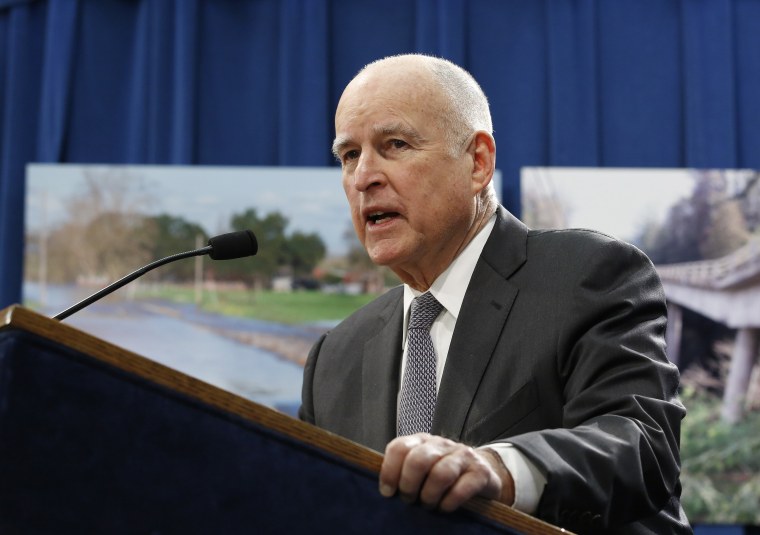
"That kind of help really wasn't present in the past," said Washington, D.C., Attorney General Karl Racine, the group's co-chairman.
Democratic attorneys general happened to be together at a conference in Florida when the White House rolled out Trump's executive order on limiting entry to the United States by immigrants in January. They immediately huddled and within hours devised the legal strategy that led to a victory in the 9th U.S. Circuit Court of Appeals, which halted the ban.
Meanwhile, Democratic secretaries of state have also started coordinating more closely and getting more political to push back on efforts to impose new restrictions on voting. "Our work has fundamentally changed since the election," California Secretary of State Alex Padilla said.
Democratic leaders who control California have declared their intention to use the state's massive size and economy as a counterweight to Washington, with Gov. Jerry Brown vowing he'd even start his own space program if Trump cuts funding for climate satellites.
Related: California Lawmakers Eye Statewide Immigration Sanctuary
Democratic governors nationwide are bullish about their prospects in the 2017-18 elections, while their colleagues in Congress acknowledge that they face an uphill battle in capturing either chamber because of a Republican-friendly set of races in the Senate and gerrymandering in the House. The result could give governors more influence in a party that has often looked to the Senate for presidential candidates and national leadership.
4. Hill Leaders
In addition to steering the party's policy agenda, Senate Minority Leader Chuck Schumer, D-New York, and House Minority Leader Nancy Pelosi, D-California, oversee powerful campaign organs that will spend tens of millions of dollars on next year's midterm congressional elections.
Neither Schumer nor Pelosi endorsed Perez in the DNC contest for chairman, and their top political priorities will always be competitive Senate and House races and countering Trump legislative efforts — not necessarily rebuilding the Democratic Party as a whole.
It's only a few blocks' walk from the DNC's headquarters to the Capitol, but the distance can sometimes feel farther, as former DNC Chairman Howard Dean learned when he clashed with Democratic leaders in Congress over where to spend precious resources under President George W. Bush.
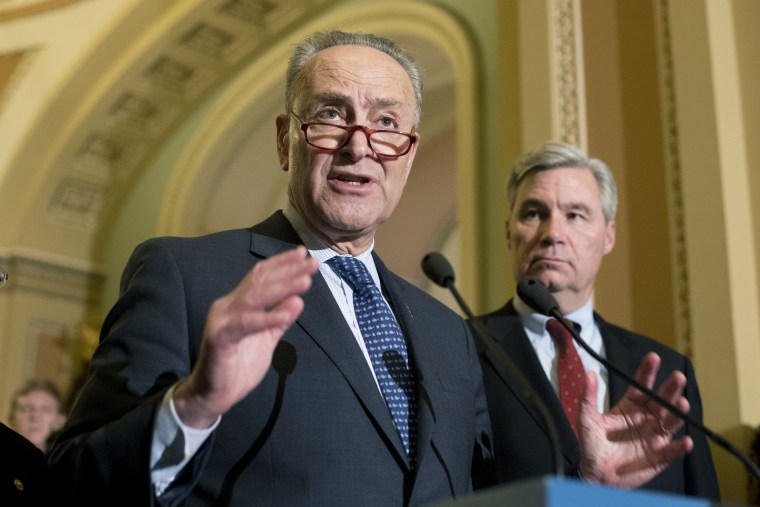
Senate Democrats are the first line of defense against Trump's agenda. With the filibuster, they hold the party's best tool to stop or at least slow Republican legislation and Trump's nominees, including those for the Supreme Court.
By completely withholding their support, Democratic lawmakers are making repealing the Affordable Care Act extremely difficult for Republicans. And House Democrats may soon have chips to cash in if their votes are needed to raise the debt ceiling, because some conservatives are expected to refuse to do so.
After some initial openness to working with Trump, Schumer seems to have felt the mood of his base and dug in for total resistance.
"The issue is not whether Donald Trump's a successful president or Chuck Schumer's a successful minority leader," he said on MSNBC last week. "The only issue is: Are we going to help the middle-class people in America and those trying to get to the middle class? Thus far, this administration has done virtually nothing to help them and a good number of things to hurt them."
5. Shadow Players
The Obamas and the Clintons and the Bidens have stepped out of the spotlight, but they will continue to wield power behind the scenes, thanks the armies of operatives, donors and elected officials who remain loyal to them.
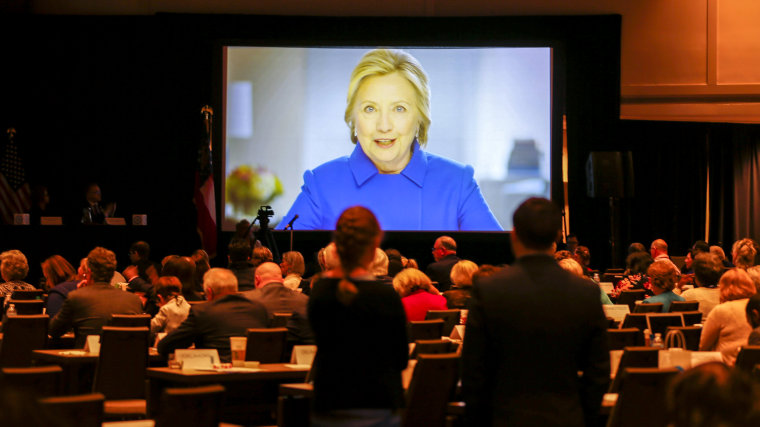
Obama and both Hillary and Bill Clinton were closely watching the DNC's recent elections. Former Vice President Joe Biden and top Obama aides like Valerie Jarrett worked the phones for Perez, whom the former president personally lobbied to enter the race. And other DNC candidates sought the blessing of the Clintons for their bids.
Obama has thrown his weight behind a major campaign on congressional redistricting, run by his former attorney general Eric Holder. And he can ultimately decide the fate of Organizing for Action, the group that grew out of his presidential campaigns. OFA recently relaunched to criticism from many Democrats, who say it undercut the official party.
Bill Clinton, meanwhile, has been an active campaigner for down-ballot Democrats, and he is known to wield his celebrity and fundraising prowess to snub Democrats who have crossed him or his wife.
"Keep fighting," Hillary Clinton said in a recent video message to Democrats. "I'll be right there with you every step of the way."
